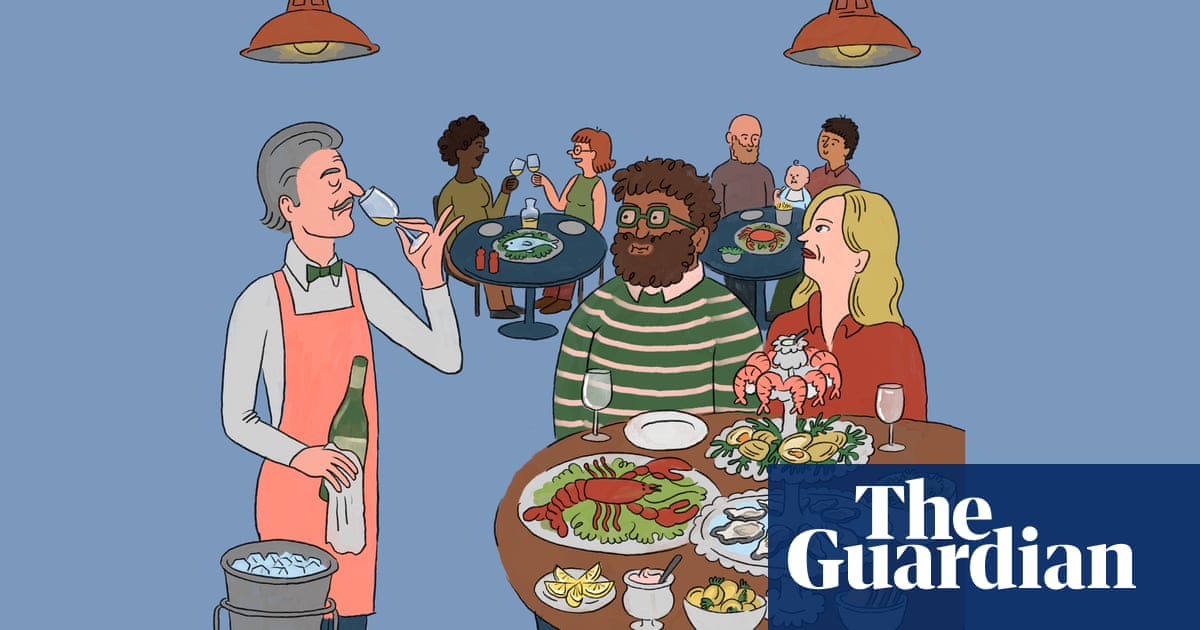
Move over, femmes fatales, heartbreakers, wonder women and teenage rebels. There’s a new screen heroine jostling for a place: the bad grandmother. A growing resistance to the tired grandma trope in popular culture as frail, lonely and hobbling is popping up in surprising places. And it’s about time.
This week, the second film in David Walliams’s Gangsta Granny franchise will come to the BBC, to the delight of thousands of children enthralled by the transformation of a Scrabble-playing, fussy old lady who smells of cabbage into an international jewel thief known as the Black Cat.
On the big screen, this new style of grandmother is already well established. Bad Grandmas features four seemingly unremarkable women whose quiet, conventional lives are upended when they accidentally kill a sleazy insurance agent. Lucky Grandma follows a Chinese American whose favourite pastimes are smoking and gambling. And in Lee Isaac Chung’s Minari, grandma Soon-ja is prone to swearing, wearing men’s underwear and sneaking money from the church collection tray. In The Proposal, Grandma Annie, played by Betty White, takes the grandchildren to see male strippers, and fakes heart attacks to get out of trouble.
And it’s not just on film and television that older women are railing against invisibility. In North America, the social activist group Raging Grannies campaigns on peace and environmental causes, challenging stereotypical views of older women and the assumption that political action is only for the young.
These pioneers are exemplars of what the pop culture critic Matt Brennan calls the Bad Grandma syndrome. “Unapologetic and at times unexpectedly crass, stylish, successful, and independent, the Bad Grandma resists the erasure of older women in American society by refusing to become invisible,” he says. “[She] recognises that feminism is a lifelong struggle, not a war that’s been won. And she’ll keep on fighting to the bitter end, ardently refusing to go quietly.”
Foremost among them is Ellie Reed, the character played by Lily Tomlin in Grandma, a seventysomething lesbian academic, poet and fearless feminist who is intent on “transmogrifying her life”. Tomlin also shines as Frankie to Jane Fonda’s Grace in the comedy series Grace and Frankie – Netflix’s longest-running show – whose success lies in its appeal to a growing, indignant audience of baby boomer feminists. Independent, feisty and outspoken, the two characters refuse to bow to traditional expectations. Instead they relish the joys of growing older and aren’t afraid of tackling normally taboo subjects. They praise the Rise Up toilet and yam lube, and extol the virtues of the Ménage à Moi vibrator for women with arthritis. “I’m a big fan of vibrators,” Fonda has admitted.
This new breed of grandmothers is beginning to make an appearance in literature, too, most recently in Miriam Toews’s novel Fight Night. When nine-year-old Swiv is expelled from school for fighting, her outlandish grandma takes on the task of home schooling with her own eccentric curriculum, based on the importance of fighting. “Fighting can be making peace,” she teaches. “Fighting can be going small.”
For sheer zaniness meet Stephanie Plum’s grandmother in Janet Evanovich’s series of crime capers. Grandma Mazur spends her social security cheques on essentials – such as bowling shoes – and occasionally watches pay-per-view porn, on the grounds that “the Weather Channel doesn’t have enough action”. She goes to funerals for entertainment and carries her .45 long barrel with her at all times, unregistered of course.
They may not be quite as extreme as Grandma Mazur, but each of the three protagonists in Salley Vickers’s recent novel Grandmothers is unconventional in her own way. Blanche is a story-weaver and wannabe artist. Minna is a hermit. Nan may seem like the traditional granny, full of homespun wisdoms and comfort food, but secretly she’s a published poet with a male pseudonym.
Surprising grandmothers abound in books for children, too. Mairi Hedderwick offers two contrasting versions in her Katie Morag series. Tough, stubborn Grannie Island works her own land and sports dungarees while fixing her tractor. Granma Mainland is a fashionable town lady who’s more interested in clothes and shopping. For sheer unrestrained nastiness, there’s Anthony Horowitz’s Granny, who looks repulsive, smells of decomposing sheep, and is out to destroy her hated grandson. Meanwhile Roald Dahl’s cigar-puffing grandmother in The Witches devises an elaborate plot to thwart the witches’ evil campaign to eliminate all children.
But you don’t need to steal the crown jewels, squander the family income at the casino, hunt down witches or swap vibrators with your best friends to be a raging granny. Older women these days are, as Annie Lennox sings, “doing it for themselves”. The generation who demanded rights and equal opportunities 50 years ago are now revelling in yet another liberation. They are, with pride and passion, celebrating their coming of age.
Sally Feldman is writing a book of advice on how to be a (nearly) perfect grandmother












